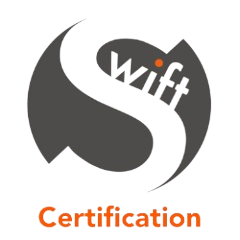n the realm of quality management and standards, obtaining ISO certification is a significant milestone for businesses seeking to enhance their credibility, operational efficiency, and marketability. In the UK, the journey towards ISO certification involves a critical decision: whether to pursue UKAS (United Kingdom Accreditation Service) certification or opt for a non-UKAS certification.
This decision can significantly impact your organisation’s reputation and the recognition of your certification. In this blog post, we will explore the key differences between UKAS and non-UKAS certification, helping you make an informed choice for your business.

What is UKAS Certification?
UKAS is the sole national accreditation body recognised by the UK government to assess organisations that provide certification, testing, inspection, and calibration services. UKAS accreditation ensures that these organisations meet internationally recognised standards, providing confidence in the reliability and competence of their services.
Key Features of UKAS Certification:
- Government Recognition: UKAS is the only accreditation body in the UK officially recognised by the government. This recognition adds a layer of credibility and trust to the certification process.
- Rigorous Assessment: UKAS-accredited certification bodies undergo stringent assessments to ensure they adhere to international standards, such as ISO/IEC 17021-1, which specifies requirements for bodies providing audit and certification of management systems.
- Impartiality and Competence: UKAS ensures that accredited bodies operate impartially and possess the necessary competence to carry out certification activities. This guarantees that the certification process is fair and reliable.
- International Acceptance: UKAS accreditation is widely recognised and accepted internationally, facilitating global trade and market access for UK businesses.
What is Non-UKAS Certification?
Non-UKAS certification refers to certifications provided by bodies that are not accredited by UKAS. These bodies may still offer ISO certification services, but they do not undergo the same rigorous assessments and recognition processes as UKAS-accredited bodies.
Key Features of Non-UKAS Certification:
- Flexibility: Non-UKAS certification bodies may offer more flexible terms and processes compared to UKAS-accredited bodies. This can sometimes lead to quicker certification timelines.
- Cost: Non-UKAS certification is often perceived to be less expensive. However, the true cost should be weighed against the potential impact on credibility and market acceptance.
- Market Perception: Certifications from non-UKAS bodies may not carry the same weight or be as widely accepted as those from UKAS-accredited bodies. This can affect your organisation’s reputation and the recognition of your certification.
Comparing UKAS and Non-UKAS Certification
To help you make an informed decision, let’s delve deeper into the differences between UKAS and non-UKAS certification in various aspects:
Credibility and Recognition
- UKAS Certification: UKAS accreditation is synonymous with high credibility and recognition, both domestically and internationally. It signifies that your certification body has undergone thorough assessments to ensure competence and impartiality.
- Non-UKAS Certification: While non-UKAS certification bodies can still provide valid ISO certifications, their recognition and credibility may vary. Businesses may face challenges in gaining acceptance, particularly in international markets.
Assurance of Quality
- UKAS Certification: The rigorous assessment process by UKAS ensures that accredited bodies adhere to stringent quality standards. This translates to a higher assurance of the quality and reliability of the certification process.
- Non-UKAS Certification: The level of assurance regarding quality can vary among non-UKAS certification bodies. Without the oversight of a national accreditation body, there is less guarantee that these bodies maintain consistent quality standards.
Market Acceptance
- UKAS Certification: Many clients, stakeholders, and regulatory bodies prefer or even require UKAS-accredited certification. This preference is due to the high level of trust associated with UKAS accreditation.
- Non-UKAS Certification: Non-UKAS certifications may not be as readily accepted, particularly in highly regulated industries or in international markets where UKAS accreditation is recognised and respected.
Cost Considerations
- UKAS Certification: The thorough assessment process and the prestige associated with UKAS accreditation often result in higher certification costs. However, this cost is justified by the enhanced credibility and market acceptance.
- Non-UKAS Certification: Non-UKAS certification can be less expensive upfront. However, businesses must consider potential long-term costs related to market acceptance and credibility.
Making the Right Choice for Your Business
Choosing between UKAS and non-UKAS certification depends on your organisation’s specific needs, goals, and market considerations. Here are a few questions to guide your decision-making process:
- What is the market perception in your industry? In some industries, UKAS accreditation is a non-negotiable requirement. Understanding the expectations of your clients, stakeholders, and regulatory bodies is crucial.
- What are your long-term business goals? If your organisation aims to expand internationally or operate in highly regulated markets, UKAS certification may offer significant advantages in terms of credibility and acceptance.
- What is your budget for certification? While cost is an important factor, it should be weighed against the potential benefits of enhanced credibility and market acceptance associated with UKAS certification.
- What level of assurance do you require? If assurance of quality, impartiality, and competence is paramount, UKAS certification provides a higher level of guarantee.
How to Get ISO Certification?
ISO Certification costs vary depending on your business, we offer competitive pricing and a unique client led approach to our auditing services. Contact us today for a FREE, no obligation quote – Call us on 0161 470 5352 or fill out a form here and a member of our team will be in touch
Conclusion
Obtaining ISO certification is a strategic decision that can elevate your organisation’s credibility, operational efficiency, and marketability. Understanding the differences between UKAS and non-UKAS certification is crucial in making an informed choice that aligns with your business goals. While UKAS certification offers unparalleled credibility and recognition, non-UKAS certification may provide more flexibility and lower costs. Ultimately, the right choice depends on your specific industry requirements, market expectations, and long-term business objectives.
By carefully considering these factors, you can ensure that your ISO certification journey not only meets your immediate needs but also supports your organisation’s growth and success in the long term.




